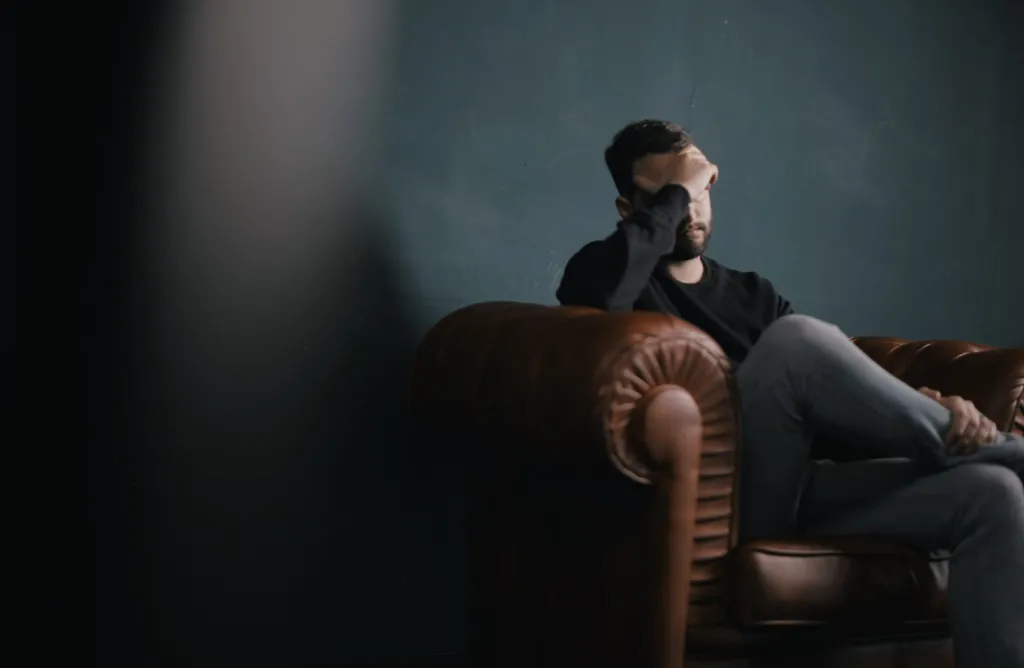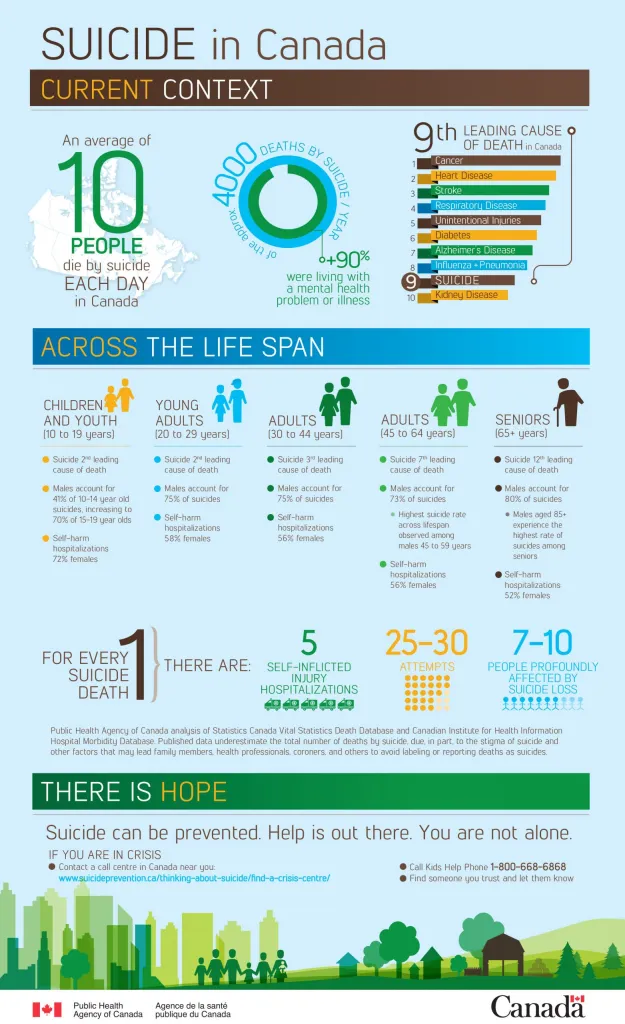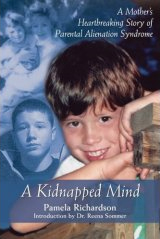
Shame system hinders men from seeking proper mental health aid
Calgary Journal - By Charlotte Holmes, July 19, 2021

It was a simple questionnaire Chad Guenter filled in while seeing his doctor that finally led to his diagnosis of depression.
Guenter, a firefighter with the city of Canmore, had been struggling for years with personal battles, after his brother was diagnosed with bi-polar disorder as a teenager and other family issues.
He didn’t know why he was feeling the way he was, so he just didn’t address them, until they overtook him.
After being diagnosed with depression, Guenter started taking medication and found healing by connecting with nature.
Homewood Health estimates each year one million men in Canada will suffer from major depression. Statistics Canada has found the suicide rates of men are roughly three times higher than women, in their respective age group.
The issue is such a concern that the Centre for Suicide Prevention has come out saying “men are in crisis.”

Guenter says through his work he has started to know too many people who were taking their lives or attempting to.
Dan McKinnon, a registered psychologist who helped found and bring the Canadian Centre for Men and Families (CCMF) to Alberta says one possibility behind the higher suicide rates among men is their reluctance to seek help.
“Men are brought up often to be agents in their life. To act and adapt and go from there.”
The aim of the centre, which provides research and services and advocacy for men’s issues, is to help individuals with varying needs, from those needing camaraderie to those in full financial strain who have no housing.
McKinnon says stereotypes such as ‘men should be strong,’ or ‘a man shouldn’t cry’ are part of what he calls the “shame system.”
“Those cultural stereotypes of masculinity and North American culture lead to men showing up in a certain way and that way leads to more stress and the stress that men encounter in their lives also feeds into certain mental health conditions for some.”
Guenter saw this with his own father and grandfather, who were more conditioned to show less emotion — something that rubbed off on his own generation.
“As a man, you might appear vulnerable or weak or looked at as someone who might not be able to handle life if they show emotion or break down or just be vulnerable in general about their mental health — or they might be looked at as ‘not a man,’” he said. PHOTO: CHRISTIAN ERFURT/UNSPLASH
Mckinnon and Guenter acknowledge things are starting to change with younger generations willing to be more vulnerable, but both say we’re still not there yet. “I think for the previous generation… they weren’t a group of men that shared a lot of emotion and they were more of the thought that ‘you should be able to handle what life throws at you,’’ says Guenter. “So that kind of gets passed along, I believe. I think that’s one of the reasons that makes it tougher for men to talk about it, because we saw that from male role models or father figures from previous generations.”
But men today are reaching out more.
Beth Barberree, executive director for CCMF Alberta, says the agency received five times the number of inquiries in December 2020 compared to March 2020 of the same year.
“You know there’s quite some intense anxiety and stress related to their emotional struggles,” says Barberree.
Psychologist McKinnon, who moderates one of the support groups at CCMF, says many of the men who attend sessions feel like they have a space to belong. He links peer support to a form of medicine.
“We have found that if you let men talk, they will heal themselves. They just need a space where they feel safe and they belong and where they have a kinship from similar experiences.”
The peer-support model is a fundamental part of Guenter’s foundation, Project All In, and his Keep Calm and Paddle On project.
In 2012, while battling his depression, Guenter found his healing in nature. After buying a stand-up paddle board, he decided he would paddle 300 km to raise awareness for mental health.
Guenter raised $5,000 the first year paddling on Diefenbaker Lake and onto the South Saskatchewan River to Saskatoon. He has continued the trip annually, opening up the conversation around mental health.
Through the power of social media, more people join in the paddle each year, and Guenter says those who come on the journey share and grow together as a community.
We would always have these great conversations on the water, and that’s where a lot of growth would happen,” says Guenter. “This paddling trip really showed people that it’s OK to be outside your comfort zone. It is OK to ask people for help.”
Over the years, as the project has grown, so has Guenter’s advocacy. His foundation, Project All In, which he started in 2018, is geared towards first responders.
Project All In focuses on first responders –– including police, fire, military and EMS personnel, along with front-line workers, such as doctors, nurses and mountain rescue operators –– because the added stress and difficulty that comes with their jobs can make them more likely to suffer certain mental health issues.
The foundation aids in opening up conversation about mental health using a simple coin. It is designed so individuals can ask for help or indicate they are OK by simply showing someone one of the two sides. Guenter says this helps break down the fear many have in asking for help.
“We in society get so comfortable in the day-to-day that it’s really easy to not go outside of your comfort zone and ask for help,” says Guenter.
Barberree, Guenter and McKinnon all say that when looking generally at mental health, it is important to meet people where they are at and that men’s mental health, though sometimes overlooked, is as vital as for any other person.
“Men are elementally human beings with more or less adaptive skills, just like all of us,” says Mckinnon.
As for anyone, there shouldn’t be shame of stigma in reaching out.
“All persons deserve a mechanism in which they can best be helped,” says Barberree.





